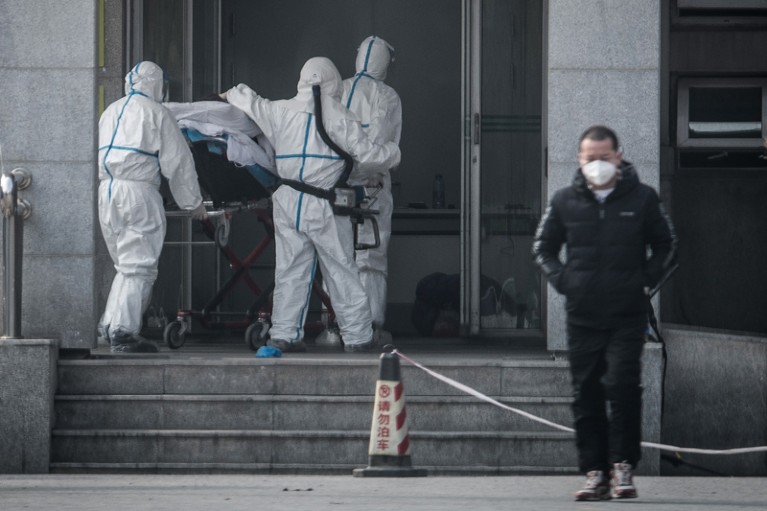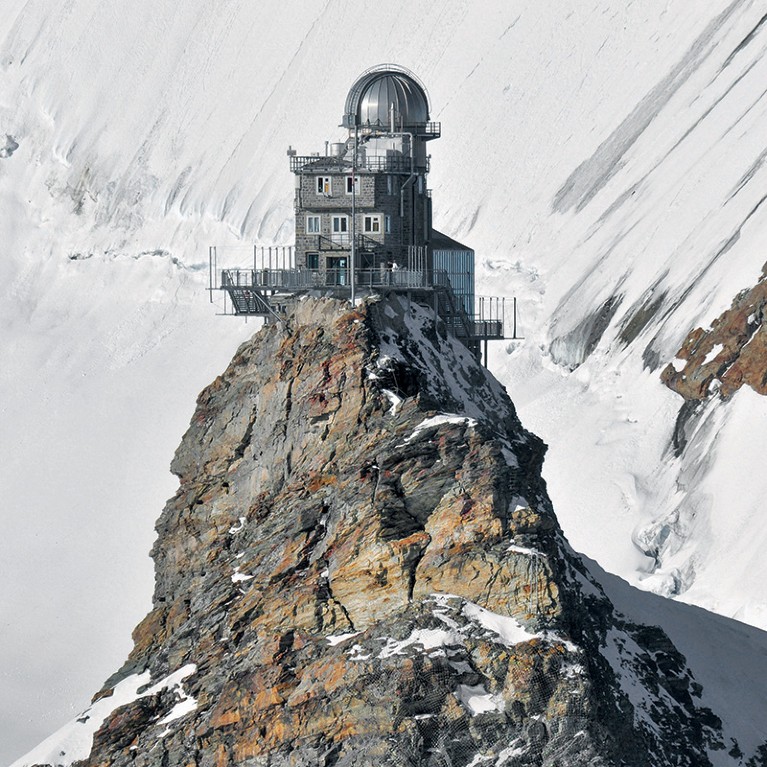Hello Nature readers, would you like to get this Briefing in your inbox free every day? Sign up here

The city of Wuhan in China is the centre of the viral outbreak.Credit: STR/AFP/Getty
US confirms first case of China virus
A 30-year-old man in Washington state has been diagnosed with the new coronavirus after a trip to China, making the United States the fifth country to report the respiratory illness — and the first outside Asia. The virus emerged in the Chinese city of Wuhan, and can spread from person to person. All travellers leaving Wuhan for the United States will be routed through one of five airports that are screening arriving passengers for the virus.
Nature | 3 min read (this story will be continuously updated with news about the Wuhan respiratory illness)
Turing treasures recovered in Colorado
Pioneering mathematician Alan Turing’s stolen Princeton degree, Order of the British Empire medal and other personal items were recovered in Colorado in 2018. Officials revealed to a Colorado court on Friday that they had seized the goods when the thief offered to loan the items to the University of Colorado Boulder. The culprit, who had changed her own last name to Turing, admits that she took the items from the archive of the mathematician’s secondary school in the United Kingdom.
Features & opinion

The Jungfraujoch research station in Switzerland is part of a global networkthat monitors the atmosphere.Credit: Udo Bernhart/Dumont Bildarchiv/picture alliance
The chemists policing Earth’s atmosphere
Ozone-killing CFCs — which, it has just been discovered, probably also contribute to brutal Arctic warming — were phased out over time by the 1987 Montreal Protocol. Scientists collect air samples from remote research stations around the world to ensure that no one breaks the rules. The detection of a rogue emission spike in China was a recent success, but researchers must keep up with an ever-growing list of damaging compounds — some so new that their impacts remain unknown.
The health cure for cancer
Our best weapons against cancer are not expensive and sophisticated drugs, argues haematologist and oncologist Vinay Prasad. Estimates indicate that public-health policies — such as cutting air pollution and eliminating socio-economic disparities — would save many more lives. “In my cancer clinic, I often wish I had more effective drugs for the person in front of me,” says Prasad. “But what I really wish is that the person I’m treating did not have cancer at all.”
How scientists can sway global leaders
When he spoke to fat cats at the World Economic Forum, palaeontologist Nick Pyenson hoped to show what the rocks that preserve the remains of ancient whales tell us about potential future dramatic sea-level rises. He shares his lessons for scientists who want to communicate the relevance of their work and the overall importance of science to global leaders.
“All on her own and against the odds”
In 1929, Isabel Ellie Knaggs used X-ray crystallography to confirm that single carbon bonds in molecules are arranged in a tetrahedron — a central pillar of modern chemistry. But the credit for the proof went to another chemist. In the first of its new series on unrecognized or undervalued scientists, Chemistry World explores Knaggs’s research and why it has been mostly overlooked.
